Cannondale Slate review
The Cannondale Slate is one of the most radical bikes out there. We've tested the Ultegra spec to see how its on/off road credentials stack up
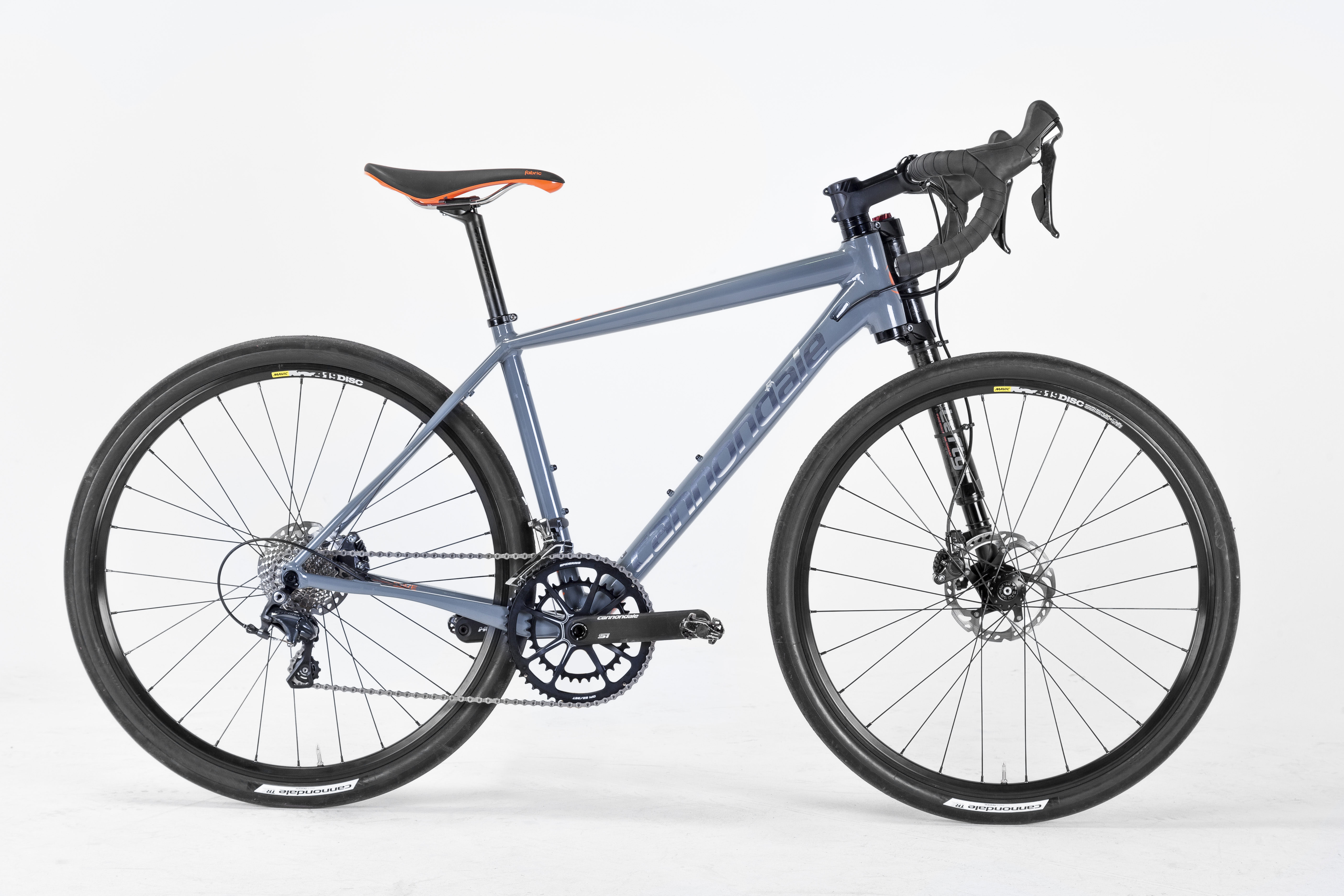
The Slate is a groundbreaking bike and many of Cannondale’s design features are finding their way into other brands’ gravel machines. It’s great fun to ride, you can cover longer distances and the extra tyre volume and large contact patch open up a lot of territory you couldn’t tackle as easily on a conventional road bike. The 3cm travel provided by the Lefty suspension fork is welcome on many back roads as well as on gravel. It makes for more comfortable and faster riding, although there’s some bobbing if you try to climb out of the saddle. It’s a shame there’s not more clearance at the chainstays though, as this would allow a lot more tyre choice to tackle UK conditions more effectively. And the gearing on the Ultegra specced bike is a bit high for steeper climbs, particularly off-road where grip may be limited. If you’re looking to buy a Slate, it would be worth spending the extra £200 for the wider range SRAM 1 variant.
-
+
Eye-catching, innovative design
-
+
Suspension helps on most UK tarmac
-
+
Ability to tackle a wide range of terrain
- +
-
-
Lack of tyre grip limits off-road performance
-
-
Limited alternative tyre choice
-
-
Some wooliness in fast turns
-
-
A bit overgeared for off-road use
-
-
Bobs on climbs even when locked out
- -
You can trust Cycling Weekly.
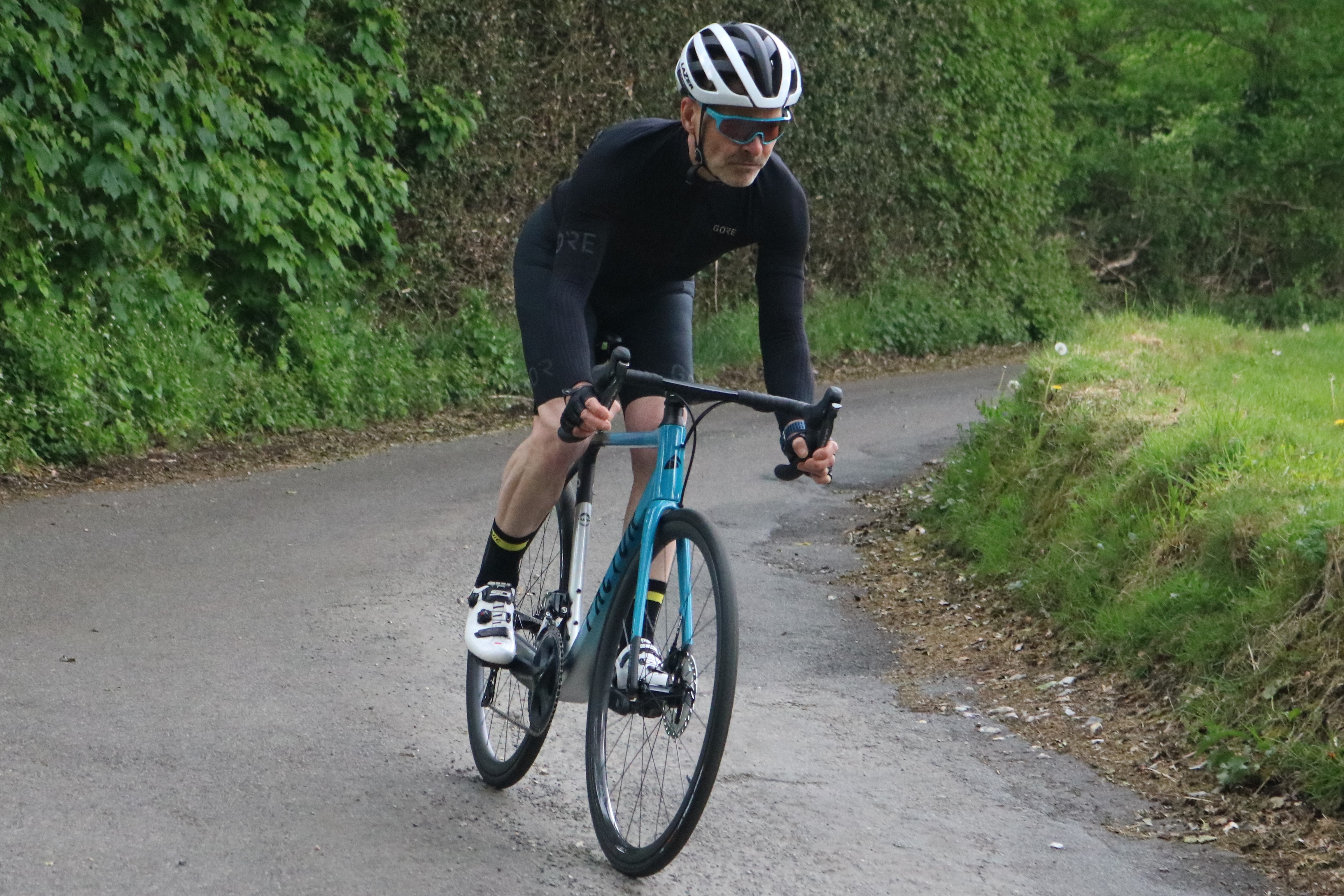
I like to imagine that Cannondale’s bike designers have a thousand page manual of rules on how to design a bike. And that each time they develop a new bike they delight in ripping out as many pages as possible. The brand has a habit of turning conventional thinking on its head.
Well, that manual got a lot thinner when the Cannondale Slate came off the drawing board. It’s one of the most radical road bike designs out there.
>>> Cycling Weekly Adventure Cross sportive series
But the Slate isn’t just a road bike, being designed to take on multiple terrains, including gravel. Cannondale describes it as “new road”.
Cannondale wanted to keep the Slate’s handling sharp whilst providing a large tyre volume to cushion the ride over bumpy surfaces. So it specified 650b wheels, with 42mm tyres. The net result is an outside diameter to the tyre which is similar to a 23mm tyre on a conventional 700c wheel.
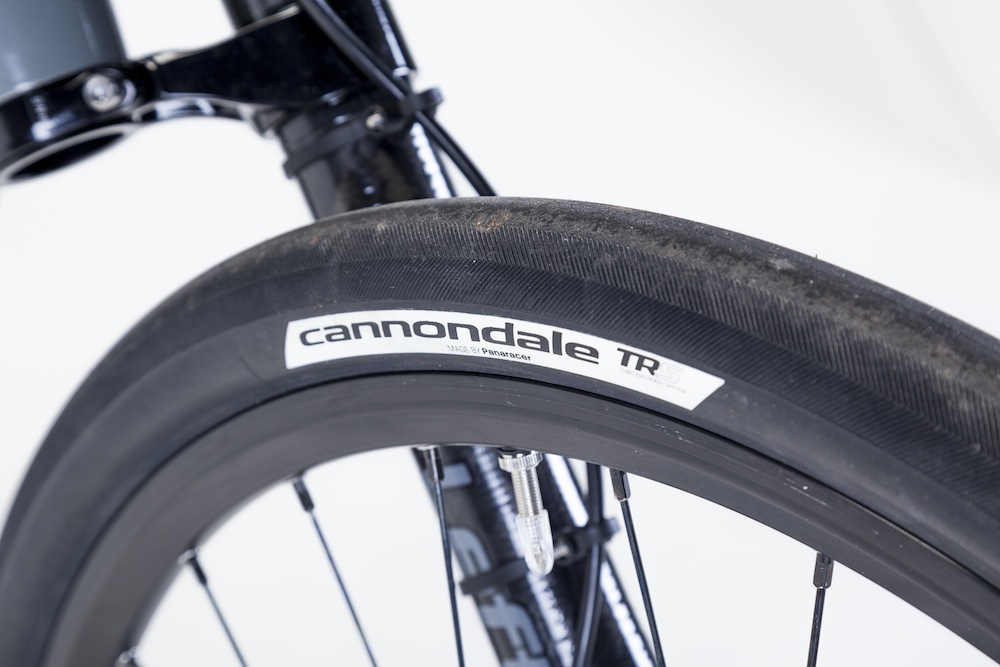
This allowed Cannondale to keep the Slate’s chainstay length to 40.5cm and its front centre to 60.1cm for the size Medium. With a wheelbase of 99.6cm, its geometry is similar to a conventional performance road machine.
>>> Cannondale Synapse Carbon 105 review
And Cannondale also gave the Slate a suspension fork. Its Lefty Oliver single leg gives the Slate 3cm of front end travel, helping it to ride over rocks and bumps. Being carbon, the fork doesn’t add a lot to the bike’s weight. The shock’s air pressure and rebound can be dialled to suit your weight and riding style.
There’s also a lock-out on the top of the shock for climbing. This can be reached easily with the hands on the bars. There’s still a bit of bob in the fork and the tyres once locked out, but it does make out of saddle efforts easier.
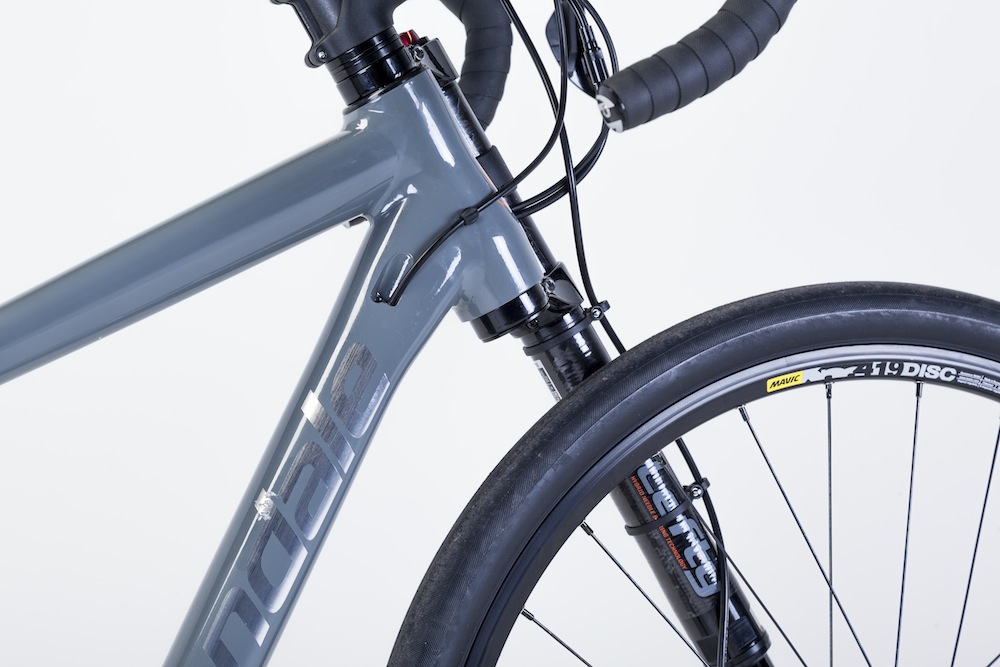
You’d expect that with only a single leg, the Slate’s fork would be subject to flex, but inside the round body the tubes are square so that they cannot rotate. They are supported by needle bearings, which gives a very rigid interface between the moving and the static sections of the fork.
It’s also attached to the frame at the top of the headtube as well as the bottom, using oversized bearings. And unlike standard fork designs, the axle is made in one piece, making it very rigid. Other versions of the Lefty are considered amongst the stiffest MTB forks around.
Cannondale has always made cutting edge aluminium frames, so the Slate makes use of the brand’s expertise, having many of the design features of the alloy CAAD12 road frame, including curved and flattened SAVE Plus sections in the stays to absorb vibration.
>>> Does this Cannondale CAAD 12 have the best paint job you've ever seen?
There’s also a sloping top tube which gives plenty of free seat post extension to help smooth the ride. The seat tube mimics the CAAD12 too, splaying out at the bottom bracket junction to increase rigidity and power transfer.
All the Slate’s cables are routed internally and, in a nod to off-road use on more extreme terrain, there’s a spare port for a dropper seatpost cable.
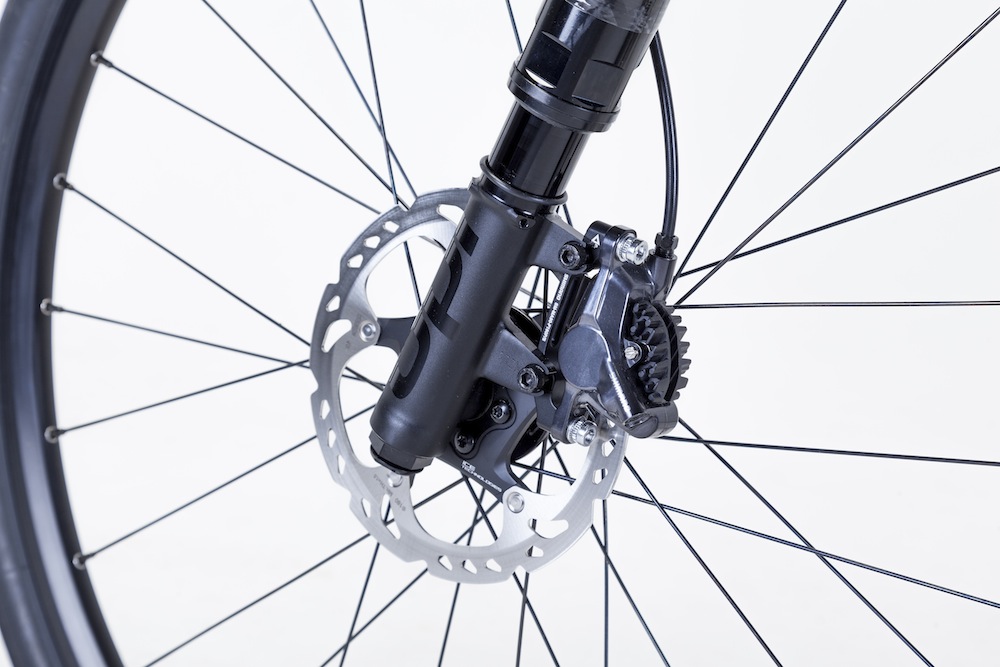
Cannondale backs up the Ultegra-equipped Slate’s on-road credentials with a 52/36 semi-compact own-brand chainset and 11-28 cassette, giving highish ratios and allowing rapid progress.
The top spec £3200 SRAM Force 1 variant gets a broader range, with a 42 tooth largest rear sprocket running off its 44 tooth chainring. There’s also a Shimano 105 equipped Slate priced at £2700 with the same gearing as our test bike. At the bottom of the Slate range, the £1700 SRAM Apex 1 single ring variant comes with an alloy lefty fork without suspension.
In all cases, you get hydraulic disc brakes. The Shimano Ultegra version provides effective, confident stopping unaffected by mud and wet.
Ride
There’s a lot to get your head around with the Slate. The tyres are perhaps where to start. Run them at 60psi, as I did initially, as this is around the middle of the recommended pressure range, and they have a lot of inertia and make for a very heavy ride. I dropped the pressure to 40psi and the difference was dramatic, with the ride transformed. It felt much faster and more enjoyable and far more like the road bike feel which Cannondale says the Slate was designed to emulate. It’s important to get this right to get the most out of the bike.
>>> Should you switch to tubeless tyres?
There’s a bit more effort required to keep the large tyres moving on road than with a conventional bike and you can feel a bit of drift on corners from their higher volume. The large contact patch does feel very grippy and secure though. I was able to keep up fine on group road rides with riders with skinny tyres.
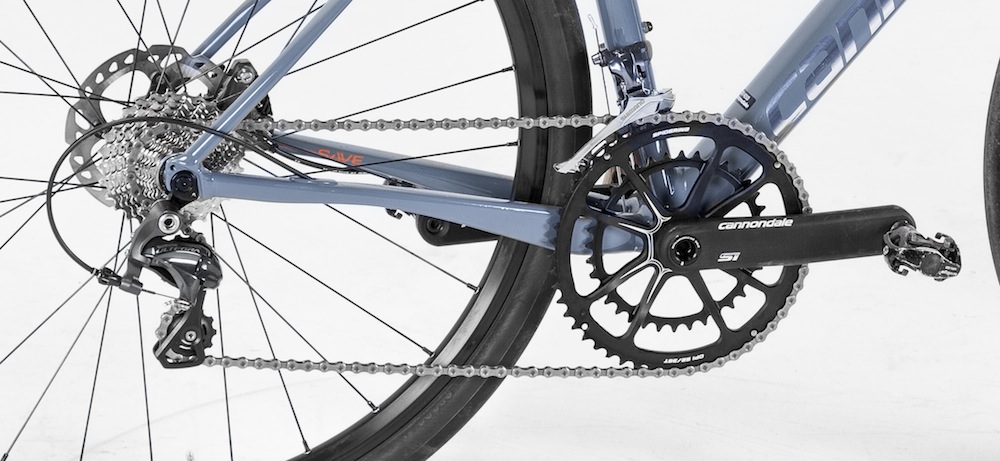
There’s no tread to the tyres either. In thickness of the rubber, they feel like an extra-wide summer road tyre. This was fine on road and on gritty tracks but in mud the bike snaked and slipped and on the muddiest tracks clogging at the chainstays was a problem.
If you live somewhere with plenty of gravel roads or plan to ride the usual dodgy UK lanes, they’re fine. But most bridleways in the UK soon get muddy and the choice of grippier 650b tyres narrow enough to clear the chainstays is limited. When Cannondale updates the Slate, expect its replacement to benefit from the better clearance provided by the Ai bottom bracket design found on its mountain bikes and its SuperX cyclocross bikes.
I swapped the tyres out for a set of Schwalbe G-One Allround 1.5 inch width tyres, one of the few 650b tyre choices narrow enough to fit the Slate. They’re significantly more robust than the supplied Cannondale tyres and benefit from a tread of closely spaced knobs, which provided just that bit more grip in muddier conditions.
Watch: How to set the perfect tyre pressure
The suspension fork coupled with the high volume tyres, definitely smoothes out the ride and makes for faster and more comfortable progress on bumpy paths. I found I was consistently using around 25mm of the 30mm travel.
The lock-out is also useful to reduce bob if you want to climb out of the saddle. The quite high gearing of the Ultegra and 105 models is likely to force this on you once you hit a hill. You need to remember to unlock on the other side though as the bike makes unhappy noises on the way down if you don’t.
Value
The Slate is not cheap for its spec. A lot of the cost is tied up in the complex carbon fork. The other components specified by Cannondale are good quality too though: Ultegra-level shifting and braking work well, while the Cannondale chainset benefits from a single piece Cannondale SpideRing double chainring and Mavic’s wheels are well built.

Thank you for reading 20 articles this month* Join now for unlimited access
Enjoy your first month for just £1 / $1 / €1
*Read 5 free articles per month without a subscription

Join now for unlimited access
Try first month for just £1 / $1 / €1
Get The Leadout Newsletter
The latest race content, interviews, features, reviews and expert buying guides, direct to your inbox!
Paul started writing for Cycling Weekly in 2015, covering cycling tech, new bikes and product testing. Since then, he’s reviewed hundreds of bikes and thousands of other pieces of cycling equipment for the magazine and the Cycling Weekly website.
He’s been cycling for a lot longer than that though and his travels by bike have taken him all around Europe and to California. He’s been riding gravel since before gravel bikes existed too, riding a cyclocross bike through the Chilterns and along the South Downs.
-
 'I'll take a top 10, that's alright in the end' - Fred Wright finishes best of British at Paris-Roubaix
'I'll take a top 10, that's alright in the end' - Fred Wright finishes best of British at Paris-RoubaixBahrain-Victorious rider came back from a mechanical on the Arenberg to place ninth
By Adam Becket Published
-
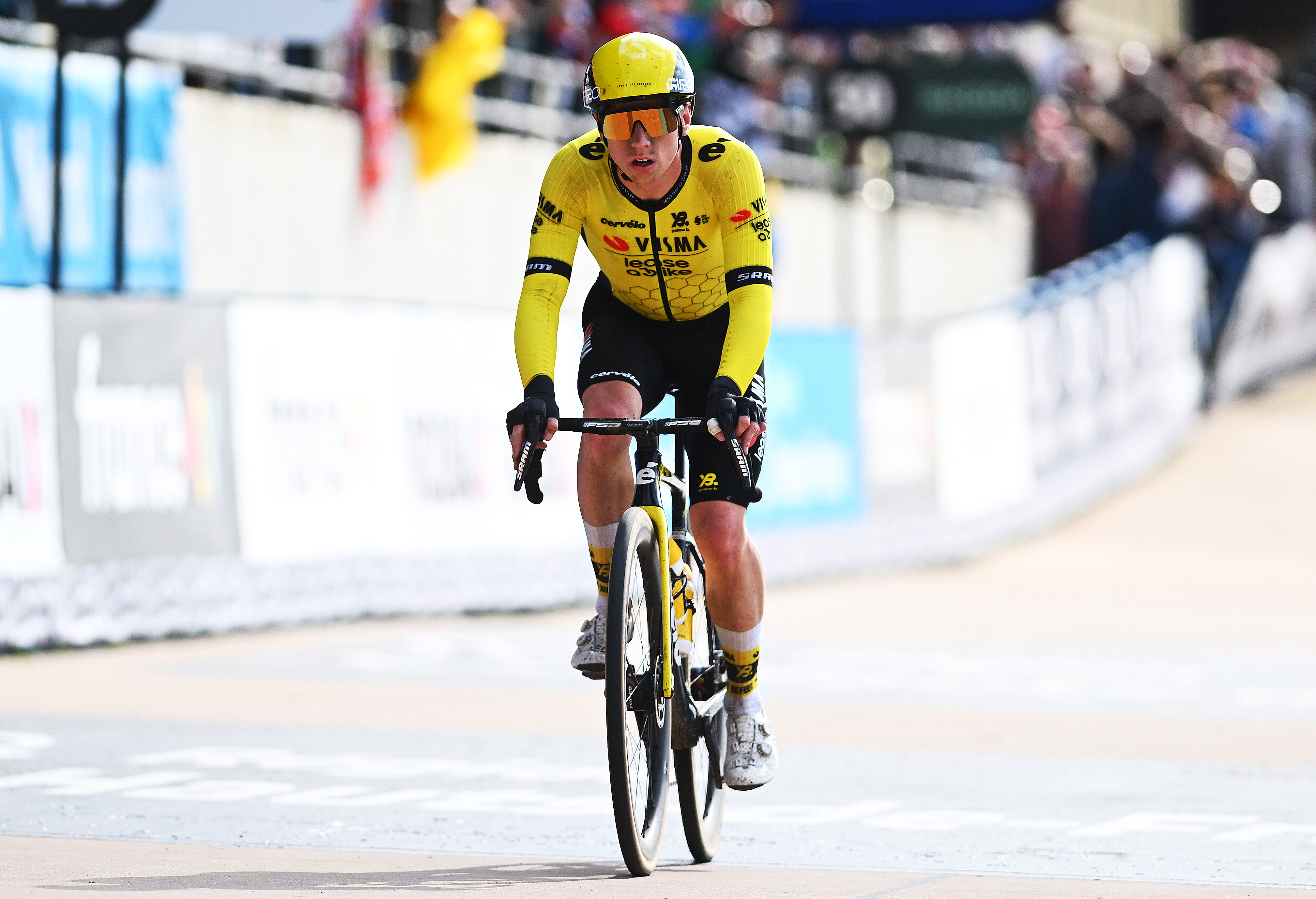 'This is the furthest ride I've actually ever done' - Matthew Brennan lights up Paris-Roubaix at 19 years old
'This is the furthest ride I've actually ever done' - Matthew Brennan lights up Paris-Roubaix at 19 years oldThe day's youngest rider reflects on 'killer' Monument debut
By Tom Davidson Published
-
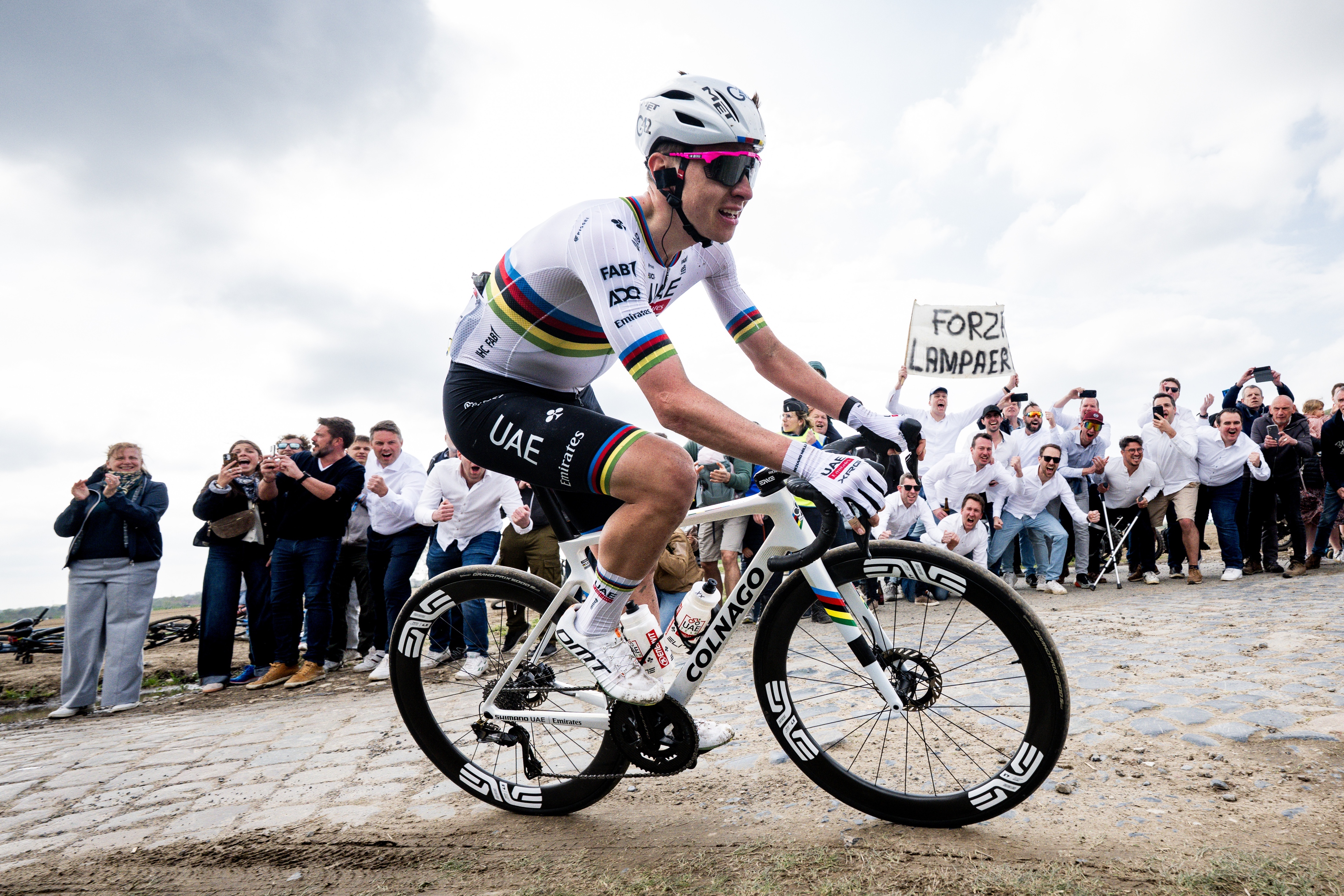 'One of the hardest races I've ever done in my life' - Tadej Pogačar finishes runner-up on Paris-Roubaix debut after crash
'One of the hardest races I've ever done in my life' - Tadej Pogačar finishes runner-up on Paris-Roubaix debut after crashWorld champion reacts to 'extremely hard' battle with Mathieu van der Poel
By Tom Davidson Published